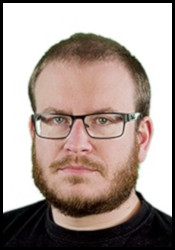
Dr Alan Archer-Boyd
Dr. Alan Archer-Boyd is an Associate Lecturer at Anglia Ruskin University and a Visiting Scientist at the MRC Cognition and Brain Sciences Unit. His main research interests are audio signal processing, head movement, and the effects of their interaction on the perception of sound by hearing-impaired listeners.
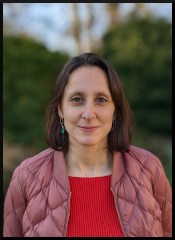
Dr. Dorothée Arzounian
Dorothée Arzounian is a post-doctoral Research Associate at the MRC-CBU. She was trained as an engineer at ESPCI Paris, holds M.Sc. degrees from Paris Descartes University and Pierre and Marie Curie University, and obtained her PhD degree from Paris Descartes University. Her previous doctoral and postdoctoral research focused on several aspects of hearing in human listeners, including within-subject perceptual variability, context effects, perception of temporal modulations, of pitch and of speech, listening effort in normal-hearing and hearing-impaired subjects, and development of sensory responses in neonates. Her research methods combine behavioral science and non-invasive physiological measurements such as EEG and pupillometry. Her project at the MRC-CBU is funded by the Royal National Institute for Deaf People (RNID) and focuses on changes in loudness and speech perception occurring after activation of a cochlear implant in deaf patients.
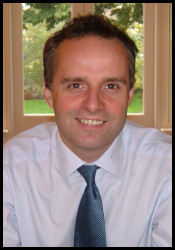
Mr. Patrick Axon
Mr. Patrick Axon is a consultant neuro-otologist and cochlear implant surgeon at Addenbrooke’s hospital, Cambridge.
He is clinical lead at the Cambridge Implant Programme. The Cambridge skull base unit is one of the largest in the U.K., and one of only two that specialises in Auditory Brainstem Implants. He is a Fellow of the Royal College of Surgeons.
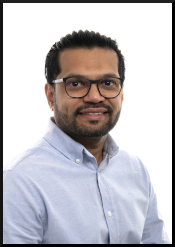
Dr. Muhammed Ayas
Dr. Muhammed Ayas is a specialist audiologist at Addenbrooke’s Hospital, specializing in cochlear implants and vestibular sciences. His clinical research interests include optimizing speech perception through cochlear implants using electrophysiological measures and balance function assessment through objective measures. He has received his PhD in Audiology and went onto complete his Doctor of Audiology from the University of Florida, USA. Muhammed is working on developing clinical protocols for the use of speech evoked electrophysiological measures through cochlear implants.
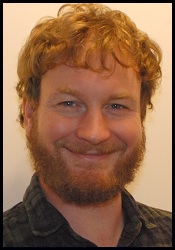
Dr. William Bailey
Dr. William Bailey is a post-doc at the Department of Clinical Neurosciences at the University of Cambridge working on gesture-based control for assistive hearing devices as part of the iHearBetter project. He completed his PhD in 2019 at the University of Salford Acoustics Research Centre investigating the effect of personality and cognitive factors on assessment of spatial audio in virtual reality. His main areas of research are human response to spatial audio reproduction and the application of immersive technologies in perceptual testing.
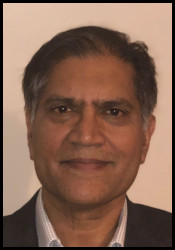
Prof. Manohar Bance
Professor Manohar Bance is the Professor of Otology and Skull Base Surgery at Cambridge. His research interests include optimizing cochlear implants, technology development, surgical outcomes, automated image analysis, new diagnostics and developing new hearing and balance therapies. He runs a basic science lab at Addenbrookes and collaborates closely with the other researchers and surgeons in Cambridge, nationally and internationally.
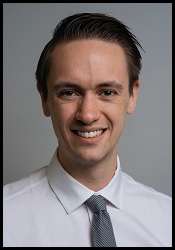
Dr. Alexander Boys
Dr. Alexander Boys is an HFSP Research Fellow in the Department of Chemical Engineering and Biotechnology working in tissue engineering and bioelectronics. He completed his PhD at Cornell University in 2019 where worked on tissue characterization, biomechanics, and tissue engineered implants. In hearing research, Alex’s work focuses on recording cellular functions related to the stria vascularis and understanding the fibrotic response that occurs during cochlear implant placement. He also works on design and development of neural implants.
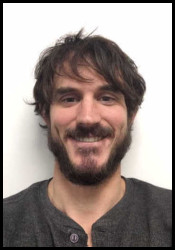
Dr. Tim Brochier
Dr. Tim Brochier is a postdoc at the Cognition and Brain Sciences Unit. where I’ll be working on ways to improve cochlear implants. His current work is focused on improving objective measures for improving speech perception in poor-performing cochlear implant users. He completed his PhD research in medical bionics at the University of Melbourne.
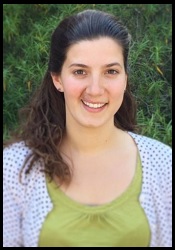
Dr. Lizzie Buchanan-Worster
Dr. Lizzie Buchanan-Worster is a post-doc at the Cognition and Brain Sciences Unit. She is interested in how children perceive spoken language and how this relates to language and literacy development. She is currently working with Dr. Lorna Halliday on a longitudinal project investigating spoken language development in primary-school-aged children with mild-to-profound sensorineuronal hearing loss. Before joining the CBU she completed her PhD at UCL, focussing on the relationship between visual speech perception, phonological awareness and reading in deaf and hearing children.
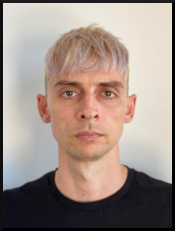
Dakota Bysouth-Young
Dakota Bysouth-Young is a clinical research audiologist in Bob Carlyon’s laboratory at the MRC Cognition & Brain Sciences Unit. With experience as a research audiologist at the Sydney Cochlear Implant Centre and former Director of Audiology at Hearing Implants Australia, he currently focuses on translational research, implementing remote assessment and intervention tool, intraoperative measurements, and investigating new speech coding strategies to improve pitch and melody perception in cochlear implant users.
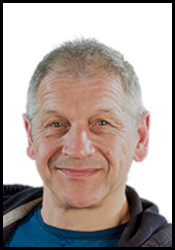
Dr. Bob Carlyon
Dr. Bob Carlyon is Deputy Director of the Cognition and Brain Sciences Unit. His research spans a wide range of topics in human hearing, but has most recently focused on the problem of how we can listen to one voice in the presence of interfering sounds, such as other speakers. It incorporates behavioural and electrophysiological experiments with normal-hearing listeners, and studies of hearing by deaf patients fitted with a cochlear implant. Specific research themes include: Listening in noisy situations by normal-hearing listeners and cochlear implant users; Perceptual segregation of concurrent sounds; Grouping and streaming; Effects of attention on auditory perception; Pitch perception.
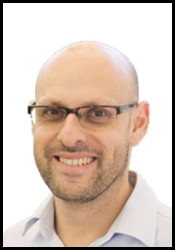
Dr. Matt Davis
Dr. Matt Davis is a Programme Leader at the Cognition and Brain Sciences Unit. The goal of his research is to understand the neural processing of language. He conducts behavioural experiments and uses brain imaging (fMRI, MEG/EEG) to study what brain processes are involved in processing spoken and written language, how we perceive speech sounds, recognise words and access meaning. Specific research themes include: Speech perception in challenging listening situations; Learning new words and their meanings; Resolution of ambiguity in spoken language; Phonological processing and short-term memory.
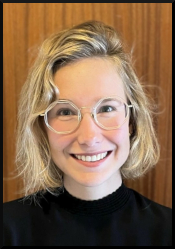
Dr. Evelien De Groote
Dr. Evelien De Groote is a Research Assistant at the Brain and Cognition Sciences Unit. She is working on a 5-year project, funded by the Wellcome Trust, in collaboration with two other labs in Belgium (ExpORL) and California (John Middlebrooks). This project investigates the temporal and spectral limitations arising when electrically stimulating the auditory nerve with Cochlear Implants. She holds an M.Sc. in Audiology and received her doctoral degree from the University of Ghent (Belgium).

Dr Simone de Rijk M.D.
Simone de Rijk completed her PhD at the Department of Clinical Neurosciences at the University of Cambridge. She was supervised by Professor Manohar Bance and Dr. Bob Carlyon. Her research interests include understanding the spread of current from cochlear implants by implanting in, and measuring from, human cadaveric heads. For her PhD project, Simone received a student award from the Baroness de Turckheim fund. Before starting her PhD, she received a BSc and MSc from the Faculty of Medical Sciences at Radboud University Nijmegen and is a registered MD in the Netherlands.
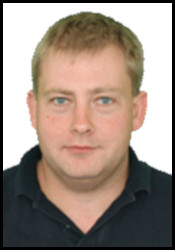
Dr. John Deeks
Dr. John Deeks is a Senior Investigator Scientist in the Speech, Hearing and Language Group of the MRC Cognition and Brain Sciences Unit. His research interests are based around aspects of human audition, and in particular: pitch perception; speech recognition; auditory grouping and segregation; hearing through cochlear and auditory brainstem implants.
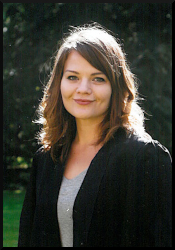
Dr Alexis Deighton MacIntyre
Alexis Deighton MacIntyre is a post-doc at the Cognition and Brain Sciences Unit, where she is a member of the Deep Hearing Lab. She is interested in temporal cognition and how auditory and motor rhythmic processes relate to speech production and perception. Alexis is currently working with Dr. Tobias Goehring on a project investigating the neural correlates of speech perception in cochlear implant users. Before coming to the CBU, she undertook her PhD at the Institute of Cognitive Neuroscience at University College London, where she researched speech breathing using behavioural and physiological methods, as well as developed automated approaches for the analysis of the speech and speech breathing time series.

Ms. Susan Eitutis
Susan Eitutis received her Bachelor’s degree in Genetics from the University of Western Ontario, Canada in 2011. She then stayed on to pursue a research Master’s studying somatic mosaicism in mouse genetics before transitioning to the clinical sciences and completing her Master’s in Audiology in 2015. After graduating, Susan worked as a clinical audiologist at Hotel Dieu Hospital in Kingston, Ontario specialising in paediatric audiology with a specific interest in genetic hearing losses. Other research interests at this time included clinical management of tinnitus. Susan currently works at Addenbrooke’s Hospital in Cambridge, UK as a research audiologist in the Emmeline Centre for hearing implants. Her research focuses on hearing preservation during cochlear implant surgery, bimodal solutions for patients with unilateral implants and new implant technologies.
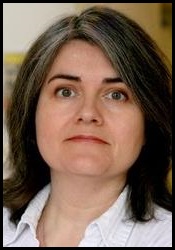
Dr. Sheila Flanagan
Dr. Sheila Flanagan is a research associate in the Centre for Neuroscience in Education, University of Cambridge.
Her research interests are in auditory processing, and the developmental trajectory of typical and atypical auditory perception. Projects have included electrophysiological, behavioral, psycho-acoustic, and signal processing methods. Participant groups have included: infants to elderly; dyslexic and typically developing; mild-Moderate hearing loss; auditory processing disorder.
Sheila has a background in electronic engineering, and an MSc. in Music Technology from the University of York. She researched for her PhD. in the Auditory Perception Group, University of Cambridge, under the supervision of Professor Brian C.J. Moore, looking at the effects of different types of acoustic radiator on timbre perception. After that, as a Daphne Jackson Fellow in the Centre for Neuroscience in Education, a research project “Music, Rhythm and Developmental Dyslexia: Investigating amplitude envelope sensitivity”. She is currently working on a 5 year longitudinal project with Professor Usha Goswami, looking at low frequency speech envelope encoding in developmental dyslexia.
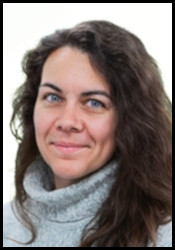
Dr. Charlotte Garcia
Charlotte Garcia is a Postdoctoral Research Associate at the MRC Cognition & Brain Sciences Unit in Bob Carlyon’s laboratory. The associateship is funded through a multi-centre collaborative Wellcome Trust grant between the CBU, KU Lueven (Jan Wouters) and UC-Irvine (John Middlebrooks), that focuses on using objective measurements to investigate spectral and temporal limitations of hearing via electrical stimulation through a cochlear implant. She completed her PhD in the same institution, funded by the W. D. Armstrong Trust for projects focused on the application of engineering in medicine and jointly supervised by Dr. Bob Carlyon, Professor Manohar Bance, and Dr. Richard Turner. Her PhD research entailed the development and validation of an objective tool for estimating patient-specific patterns of neural activation patterns in cochlear implant users called the Panoramic ECAP (PECAP) method whose ultimate aim is to improve speech perception in poor-performing cochlear implant users. She is highly interested in translational research, and so in addition to developing a rapid, clinically-viable implementation of the PECAP method to apply in clinic, participates regularly in the Hearing Implant Device Optimisation (HIDO) Clinic at Addenbrookes Hospital. Her research interests also include pitch and music perception in hearing impaired listeners using various auditory technology platforms. She holds a B.S. in Biomedical Engineering and a B.A. in Music Theory & Cognition from Northwestern University (Chicago, USA), and prior to joining the MRC-CBU she worked as a Biomedical Engineer in the healthcare industry developing and implementing multivariate process control systems for radio-frequency welding processes.
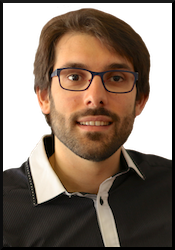
Dr. Clément Gaultier
Dr. Clément Gaultier is a post-doc at the Cognition and Brain Sciences Unit supported by a Fellowship from the Fondation Pour l’Audition (www.fondationpourlaudition.org).
His research uses a multi-disciplinary approach to investigate new speech enhancement strategies for cochlear implants users.
Before that, he completed his PhD at the University of Rennes 1 (France) and worked as a postdoctoral researcher in the telecommunication industry
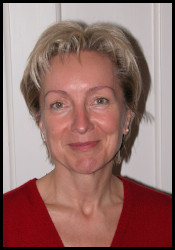
Dr. Hedwig Gockel
Dr. Hedwig Gockel is a Senior Investigator Scientist at the Cognition and Brain Sciences Unit working in the Hearing, Speech and Language group with Bob Carlyon. Her research interests in hearing have mostly focused on pitch perception, auditory grouping and streaming processes, effects of attention on auditory perception, and loudness and masking. She uses mostly behavioural and electrophysiological methods.
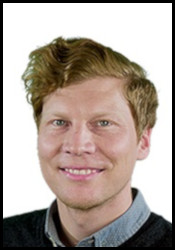
Dr. Tobias Goehring
Dr. Tobias Goehring is an MRC Fellow / Senior Research Associate starting his own group at the MRC CBU supported by a Fellowship (Career Development Award) from the Medical Research Council (UKRI). His focus is on improving noise-reduction and speech-coding algorithms for hearing devices using machine learning, speech-in-noise perception, electrophysiology and multi-sensory integration of sound perception. He completed his PhD at the University of Southampton as an EU Marie Curie Fellow (www.icanhear.eu) and worked as R&D Engineer in the Automotive Industry in Germany before that.
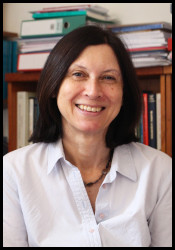
Prof. Usha Goswami
Usha Goswami FBA is Professor of Cognitive Developmental Neuroscience at the University of Cambridge and a Fellow of St John’s College, Cambridge. She is also founding Director of the Centre for Neuroscience in Education. After training as a primary school teacher at the UCL IoE, she decided to pursue research in child psychology, taking a D. Phil. in Psychology at the University of Oxford. Usha has worked on reasoning by analogy (structure mapping), on phonological development, and on reading development and developmental dyslexia across languages. Most recently, she has been studying the neural mechanisms underpinning language encoding by neuroelectric oscillations, and relationships to the amplitude modulation structure of infant- and child-directed speech.
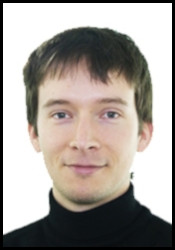
Dr. François Guérit
Dr. François Guérit is a post-doc at the MRC Cognition and Brain Sciences Unit. He is currently part of a 5-year project, funded by the Wellcome Trust, in collaboration with two other labs in Belgium ( ExpORL) and the USA ( John Middlebrooks). This project investigates the temporal and spectral limitations arising when electrically stimulating the auditory nerve with Cochlear Implants. Previously he was a Ph.D student at the Hearings Systems group, Technical University of Denmark, and a Research Assistant at the MRC Cognition and Brain Sciences Unit.
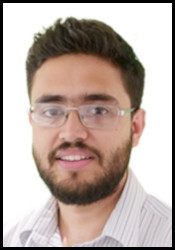
Mr. Andrew Harland
Andrew Harland is a Research Assistant at the Cognition and Brain Sciences Unit. He is working on a five-year project, funded by the Wellcome trust, in collaboration with two other labs in Belgium ( ExpORL) and the USA ( John Middlebrooks). This project investigates the temporal and spectral limitations arising when electrically stimulating the auditory nerve with Cochlear Implants.

Mr. Filip Hrncirik
Filip Hrncirik is a PhD student in the Department of Clinical Neurosciences focussing on the mechanical aspects of cochlear implant insertion. Filip has an engineering degree in nanomaterials and nanotechnology from the Technical University of Liberec (CZ), where he received a Chancellor Award for his master thesis that elucidated the destiny of nanoparticles within the environment, and a MPhil degree in Micro and Nanotechnology Enterprise from the University of Cambridge. Furthermore, Filip has also deepened his entrepreneurial knowledge with the EnterpriseTECH STAR programme run by the Judge Business School (University of Cambridge).
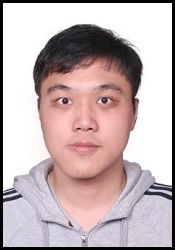
Mr. Botian Huang
Botian Huang is a PhD student in Clinical Neurosciences at the University of Cambridge. Under Prof. Manohar Bance’s supervision, he is doing researches on microelectrode arrays (MEAs) for neural interfacing in collaboration with Prof. George Malliaras. Before his PhD, he received his B.E. and M.E. in Electronic Engineering from Shanghai Jiao Tong University, China in 2017 and 2020, respectively.
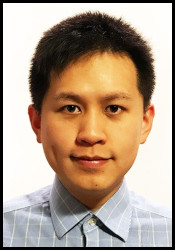
Dr. Chen Jiang
Dr. Chen Jiang is a post-doctoral research associate with the Department of Clinical Neurosciences, University of Cambridge, working on cochlear implants with Professor Manohar Bance. His research interests include implant stimulus spread in cochleae, 3D printed artificial cochleae, and micro-fabricated electrode arrays for stimulation/recording. Before he joined Professor Bance’s Lab, he was a PhD student and later a post-doc research associate with the Cambridge University Engineering Department, working on novel low-cost low-power electronic devices that are flexible and conformable for wearable and implantable electronics. He was a receipt of the IEEE Electron Device Society PhD Student Fellowship 2018, and was also the winner of the Cambridge Society for the Application of Research Award 2018
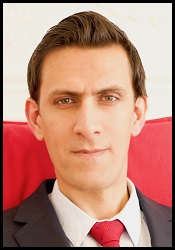
Dr. Mahmoud Keshavarzi
Mahmoud is a postdoctoral research associate at the Centre for Neuroscience in Education (CNE) at the Department of Psychology, University of Cambridge. The goal of his research is to explore the neural mechanisms underlying developmental language disorders in children, using brain imaging techniques such as EEG and MEG. His research interests include developmental language disorders, hearing aids, brain stimulation through tACS, machine learning and signal processing.”Mahmoud is a postdoctoral research associate at the Centre for Neuroscience in Education (CNE) at the Department of Psychology, University of Cambridge. The goal of his research is to explore the neural mechanisms underlying developmental language disorders in children, using brain imaging techniques such as EEG and MEG. His research interests include developmental language disorders, hearing aids, brain stimulation through tACS, machine learning and signal processing.
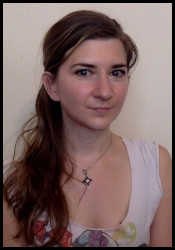
Dr. Wiebke Lamping
Wiebke Lamping is a post-doc in the SOUND lab. The focus of her research lies in combining electrophysiological and behavioural measures to improve speech perception in noise for people who have been provided with a cochlear implant (CI). Her research interests include the optimisation of CI fitting, as well as the mechanisms underlying pitch and envelope processing. She is currently working on determining how envelope processing relates to speech-in-noise perception in ageing, hearing impairment and for CI listeners. She also works on exploring new approaches for signal processing strategies in CI users to reduce spread of excitation.
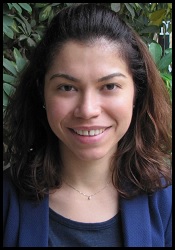
Ms. Carolina Leal
Carolina is a part-time PhD student at the MRC Cognition and Brain Sciences Unit funded by the ESRC DTP.
She is dual trained as a Speech and Language Therapist and Audiologist from Federal University of Minas Gerais (Brazil) and holds an MSc in Advanced Audiology from UCL.
Carolina is a Senior Teaching Fellow in Audiology at the UCL Ear Institute. She has a special interest in the audiological assessment and rehabilitation of infants and children. Her most current clinical experience is within the field of paediatric Auditory Implants.

Prof George Malliaras
Prof. Malliaras’ group is interested in bioelectronics. Research themes include the design and validation of implantable and cutaneous devices to interface with the brain, with the aim of understanding and treating neurological disorders and brain cancer. They also include the realisation of electronic devices and circuits that mimic some of the computational features of the brain. The group is also interested in the fundamental phenomena governing the operation of bioelectronic devices.
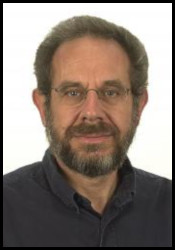
Prof. Brian Moore
Prof. Brian Moore runs the Auditory Perception Group in the Department of Psychology. His research interests include: Mechanisms of normal hearing and hearing impairments; relationship of auditory abilities to speech perception; design of signal processing hearing aids for sensorineural hearing loss; fitting of hearing aids to suit the individual; electrical stimulation as a means of restoring hearing to the totally deaf; design and specification of high-fidelity sound-reproducing equipment; development of models of auditory perception, especially loudness perception.
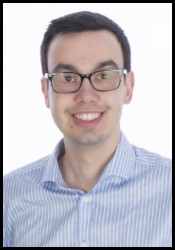
Mr. Jameel Muzaffar
Mr Jameel Muzaffar is a Specialist Registrar in ENT surgery. He is undertaking a PhD in the Department of Clinical Neurosciences investigating the effects of impulse noise on the auditory system and identification of the site of auditory lesion in the acutely noise exposed, using a combination of psychoacoustic and electrophysiology measures.
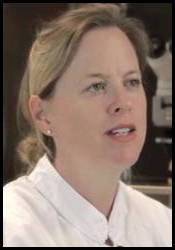
Prof Róisín Owens
My research program is centered on harnessing the power of engineering for developing in vitro biological models. By developing both the biological model and the adapted monitoring methods in parallel, both may be iteratively improved resulting in enhanced systems. I define the latter combination as in vitro systems: an integrated system to monitor human biology in vitro. Specifically, I have focused on the use of electroactive materials and devices which bridge a gap between hard inflexible materials used for physical transducers and soft, compliant biological tissues, allowing a new understanding of how to probe biological systems in the least invasive and thus most biomimetic fashion possible.
The three major strands of my research portfolio are:
1. Basic understanding of the interface of biological materials with transducers
2. Development of 3D models with integrated fluidics and electronics
3. Use of 3D in vitro systems to answer specific questions related to human pathology

Dr. Roy Patterson
Dr. Roy Patterson ran the Centre for the Neural Basis of Hearing. He has developed a computational model of the auditory signal processing that transforms a sound wave into the auditory image you hear in response to that sound wave. He investigates how the cochlea and neural centres in the auditory pathway process speech and music with the aim of incorporating the algorithms into speech recognition machines and hearing aids.
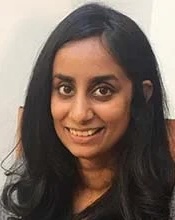
Dr Saima Rajasingam
- Following her graduation with a BSc (Hons) in Audiology from University College London, Saima obtained her PhD in Auditory Perception at Aston University.
- She is a RCCP-registered Audiologist and HCPC-registered Hearing Aid Dispenser, with experience in the NHS and private sector. She maintains her clinical practice as a Consultant Audiologist at Cubex Audiology and is a Fellow of the British Society of Audiology (FBSA).
- She leads ARU’s Applied Hearing Research Hub (Vision and Hearing Sciences Research Group).
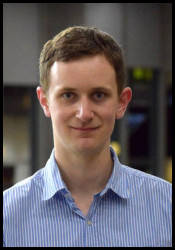
Dr. Iwan Roberts
Iwan is a Postdoctoral Research Associate in the Department of Clinical Neuroscience at the University of Cambridge. With a multidisciplinary background, Iwan completed a MPhys Physics degree at Durham University followed by a PhD in the EPSRC MRC CDT for Regenerative Medicine at the University of Manchester focussing on tissue engineering of contractile tissues. His current research focusses on the development of 3D printed artificial cochlea to study the electrical properties of cochlear implant stimulation as well as the mechanical properties of insertion to improve cochlear implant machine-neural interfacing and reduce insertion trauma, respectively. Furthermore, his research also involves finite element modelling, neural cell culture on microelectrode arrays and study of fibrosis on electrode implants. Additionally, Iwan is a keen supporter scientific entrepreneurship and innovation and leads the global Innovation Forum network of entrepreneurial scientists.
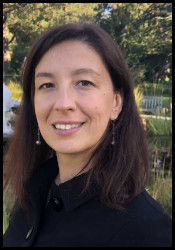
Dr. Marina Salorio-Corbetto
Marina is a Research Associate who has previously worked as a clinical audiologist. Her PhD work was carried out at Professor Brian Moore’s Auditory Perception Group and was focused on the evaluation of hearing-aid signal processing for people with ‘dead regions in the cochlea’, an abnormality affecting a particular type of sensory cell in the inner ear.
While at the Auditory Perception Group, Marina started collaborating with Dr Josephine Marriage as a Research Audiologist. Together, they joined Community NHS paediatrician Dr Tamsin Holland Brown to explore alternative interventions during the ‘watchful waiting period’ of children with glue ear. Their research inspired two NHS trusts to develop low-cost bone-conduction headsets to support communication in children with glue ear.
Marina’s long-standing interest in the plasticity of the auditory system and on the effects of auditory deprivation led her to join the Department of Clinical Neurosciences at the University of Cambridge in January 2019. She has worked with two groups within the Department. At the SOUND lab (led by Dr Debi Vickers) she focuses upon cross-modal organisation and audio-visual integration in cochlear-implant users.
This line of enquiry can help researchers and clinicians to understand the process of adaptation to a cochlear implant. At the SENSE lab (led by Prof. Manohar Bance), Marina focused on neuromodulation to relieve tinnitus.
Marina is a Fellow of Wolfson College, where she is a tutor to undergraduate and graduate students. She is also a Fellow of the British Society of Audiology and an Associate Fellow of the Higher Education Academy.
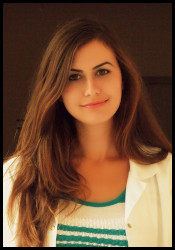
Ms. Ilkem Sevgili
Ilkem is a PhD student in Clinical Neurosciences at the University of Cambridge. Under Prof. Manohar Bance’s supervision, she is working on spiral ganglion-on-a-chip and stria vascularis-on-a-chip models. Using these models, her ultimate goal is to discover therapeutics to prevent or treat hearing loss. Before starting her PhD, she completed her MRes in Bioengineering at Imperial College London (Dist) and BSc (Hon) in Molecular Biology and Genetics at Gebze Technical University, Turkey.
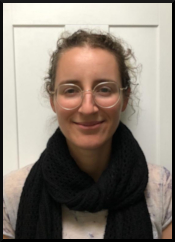
Dr Lidea Shahidi
Lidea Shahidi is a Research Associate in the Cognition and Brain Sciences Unit, working under Dr. Tobias Goehring in the Deep Hearing Lab. Her research explores the potential of a cochlear implant signal processing strategy for reducing the neural spread of excitation with the goal of improving speech intelligibility outcomes. She studied for her PhD in the Applied Machine Learning Lab at Duke University, where her research focused on speech enhancement strategies for mitigating the impact of reverberation on intelligibility outcomes for cochlear implant users.
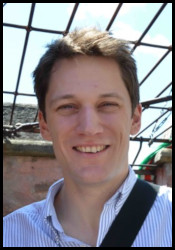
Mr. Matthew Smith
Mr. Matthew Smith is a Specialist Registrar in ENT surgery and Clinical Research Associate at Addenbrooke’s Hospital. He is undertaking a PhD looking at Eustachian tube dysfunction and possible treatments for it. His current research relates to tests of Eustachian tube function, clinical trials of balloon Eustachian tuboplasty and investigation of the underlying mechanism of Eustachian tube dilatation.
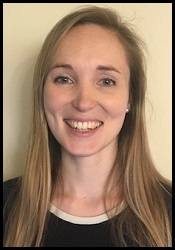
Miss Chloe Swords
Miss Chloe Swords is a Specialist Registrar in ENT surgery and PhD student at Addenbrooke’s Hospital. Her PhD examines the influence of cochlea anatomy and pathology on cochlear implant current spread, using both cadaveric and 3D-printed models. She is jointly supervised by Professor Manohar Bance (Clinical Neurosciences) and Dr Cecilia Brassett (Physiology, Development and Neuroscience).

Mr. James Tysome
Mr. James Tysome is a Consultant ENT Surgeon at Addenbrooke’s Hospital specialising in otology, hearing implantation and skull base surgery. His research interests include improving outcomes in patients with hearing implants, eustachian tube dysfunction and novel treatments for patients with tumours affecting hearing.
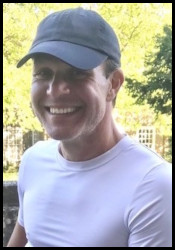
Dr. Martin Vestergaard
Dr Martin Vestergaard is a computational neuroscientist at Wolfson College, Cambridge. His research interests include perceptual and cognitive segregation of competing speech, auditory size perception, and other cognitive aspects of auditory function. He uses psycho-acoustic and neuroimaging techniques such as EEG and fMRI. Martin has also worked on auditory perception in clinical populations, and most recently he has studied value based integration processes in the human brain.
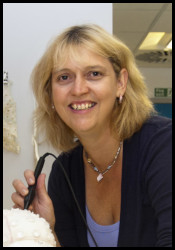
Prof. Debi Vickers
Debi Vickers is a Principal Research Associate in the Clinical Neurosciences Department running the SOUND Lab (https://sound-lab.medschl.cam.ac.uk/sound-team/deborah-vickers/).
Her research interests focus on understanding and optimising outcomes with auditory implants and hearing aids using techniques in electrophysiology, psychophysics and speech perception. Current research themes include understanding brain changes following implantation, maximising binaural processing, optimising cochlear implant fitting parameters, personalised training to improve listening skills and the development of sensitive real-life listening measures.
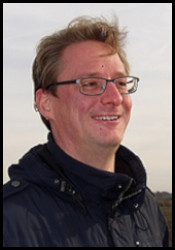
Dr. Ben Williges
Dr Ben Williges is a Hearing Technology and Audiological Engineer. He is currently working on measuring cortical responses in adults with Cochlear implants (CIs), in order to develop objective measures to help understand sound transmission through the electrically stimulated auditory pathways.

Dr. Ian Winter
Dr. Ian Winter runs a research group in the Department of Physiology, Development and Neuroscience. He studies the primitive neural mechanisms that underpin auditory scene analysis. That is, the neurophysiological correlates of the cues necessary for the segregation and fusion of auditory objects. This work is carried out in close collaboration with psychophysicists and computer modellers with the long term aim of producing a multi-channel, physiologically based model to explain auditory perception in terms of neural information processing.
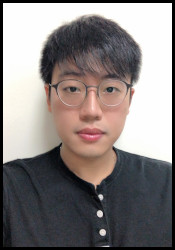
Mr. Yi-Lin Yu
Yi-Lin is a PhD student in Clinical Neurosciences at the University of Cambridge. Under Prof. Manohar Bance’s supervision, he is doing researches on biohybrid neural interface for the restoration sensorineural hearing loss in collaboration with Prof. George Malliaras. Before his PhD, he received his medical degree (M.D.) from the National Defense Medical Center, Taipei, Taiwan. He completed the training course of residency and chief residency in the Department of Neurological Surgery in Tri-Service General Hospital, Taiwan in 2017. He worked for Tri-Service General Hospital Penghu branch as an attending neurosurgeon from 2017 to 2019

 Cambridge Hearing Group
Cambridge Hearing Group

